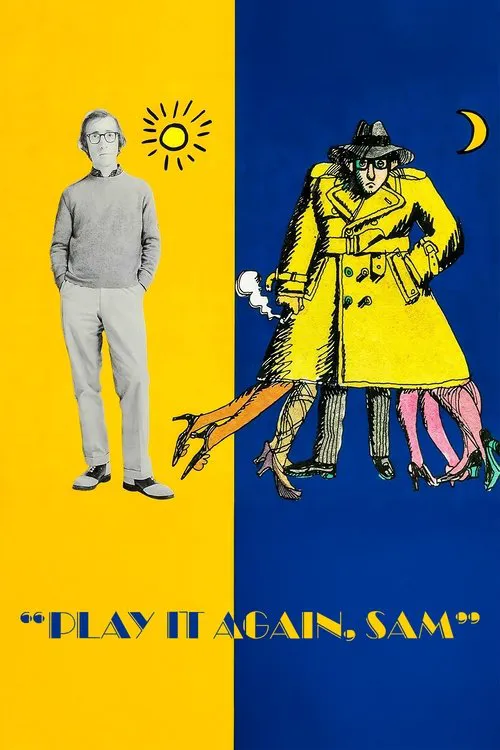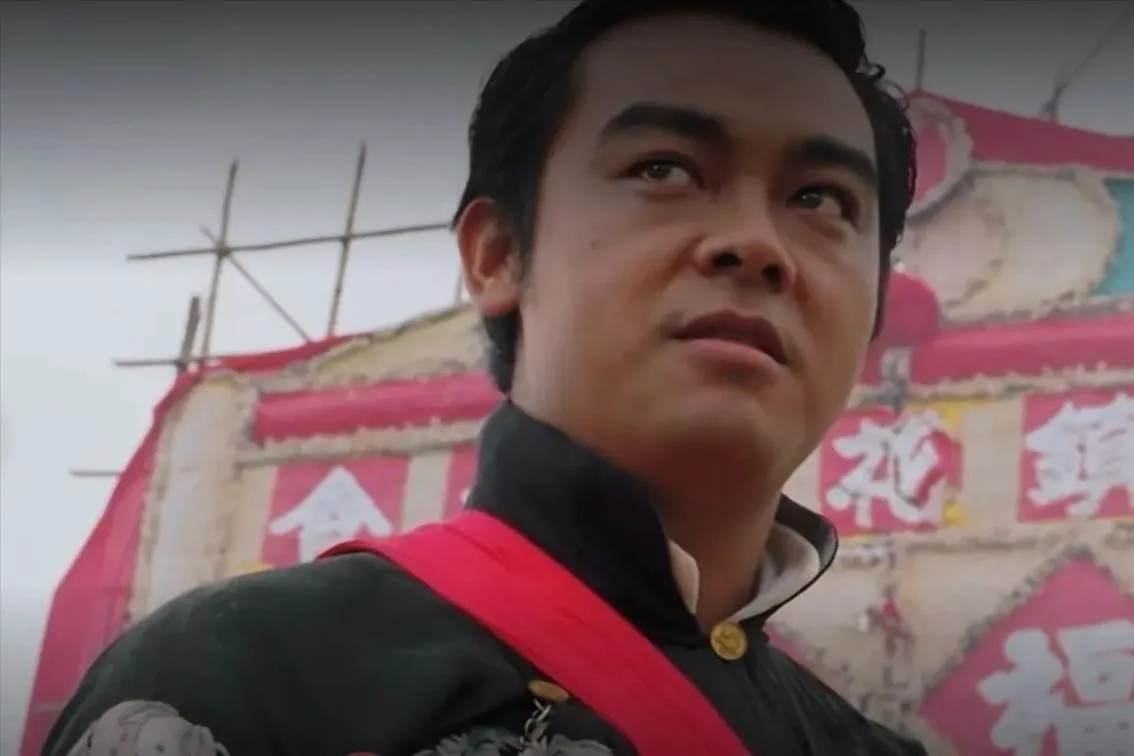Play It Again, Sam

Plot
In the midst of Manhattan's bustling streets, a neurotic and somewhat awkward film critic, Allan Felix, navigates the difficulties of love, loss, and identity. His life has spiraled out of control since his wife, Linda, has left him. Allan finds solace in the classic film Casablanca (1942), often repeating iconic lines from the movie and drawing parallels between his life and the cinematic masterpiece. Allan is particularly enamored with Humphrey Bogart's portrayal of Rick Blaine in Casablanca, seeing himself in the character's cynicism and vulnerability. He finds himself idealizing Bogart as his ultimate guide, drawing inspiration from the actor's on-screen persona. As Allan tries to pick up the pieces of his shattered life, he confides in his friends, George and Nancy. They're a charismatic married couple who possess a certain je ne sais quoi that seems to radiate an aura of sophistication. George, a suave and confident businessman, and Nancy, a free-spirited and outgoing woman, offer Allan their unorthodox advice. In an effort to help Allan get over his ex-wife, they persuade him to reenter the dating scene. Their plan backfires at first, as Allan finds himself struggling to connect with women. His inability to let go of his idealized version of Bogart and his own neurotic tendencies hold him back from moving on. George and Nancy's attempts to intervene only lead to further comedic misunderstandings, as Allan's fragile psyche is unable to cope with the prospect of new relationships. However, Allan's life takes an unexpected turn when he meets Diane, a beautiful and kind-hearted woman who shares his passion for the arts. For the first time in months, Allan feels an inkling of hope as he navigates his growing connection with Diane. But as their relationship deepens, Allan's insecurities resurface, and he begins to question whether he's truly over his ex-wife and ready to move on. George and Nancy intervene once more, this time by introducing Allan to their friends, all of whom share a passion for Casablanca. The movie becomes a central theme in Allan's journey, as he draws parallels between the classic film and his own love life. His illusory idol, Humphrey Bogart, begins to manifest in unexpected ways, offering Allan guidance and advice in the most unlikely of forms. One night, as Allan struggles to come to terms with his feelings for Diane, he's forced to confront the harsh realities of his own neurosis. In a poignant moment of self-reflection, Allan realizes that he's been living in a world of fantasy, idealizing both Bogart and his past relationship with Linda. With this newfound understanding, Allan makes a conscious decision to let go of his past and take control of his present. He musters the courage to be honest with Diane about his fears and insecurities, and to some extent, she understands him. However, ultimately, their relationship falters, not due to Allan's shortcomings, but because of his lingering emotional baggage, which prevents him from truly opening himself up to love. As Allan's journey comes to a close, he acknowledges that he still has much to learn about himself and relationships. He takes a step back, allowing him to reassess his priorities and values. George and Nancy offer their continued support, reminding Allan that it's okay to take time to heal and that he's not alone in his struggles. The film concludes with Allan, a little wiser, returning to the movies, Casablanca, where he finds a renewed sense of connection to the film and its characters. The iconic lines he's so often repeated now hold a deeper significance, as he's gained a deeper understanding of himself and the world around him. Though Allan's journey hasn't been easy, he's come to realize that the only way to truly "play it again" is to learn to live in the present, with all its complexities and uncertainties.
Reviews
Recommendations





